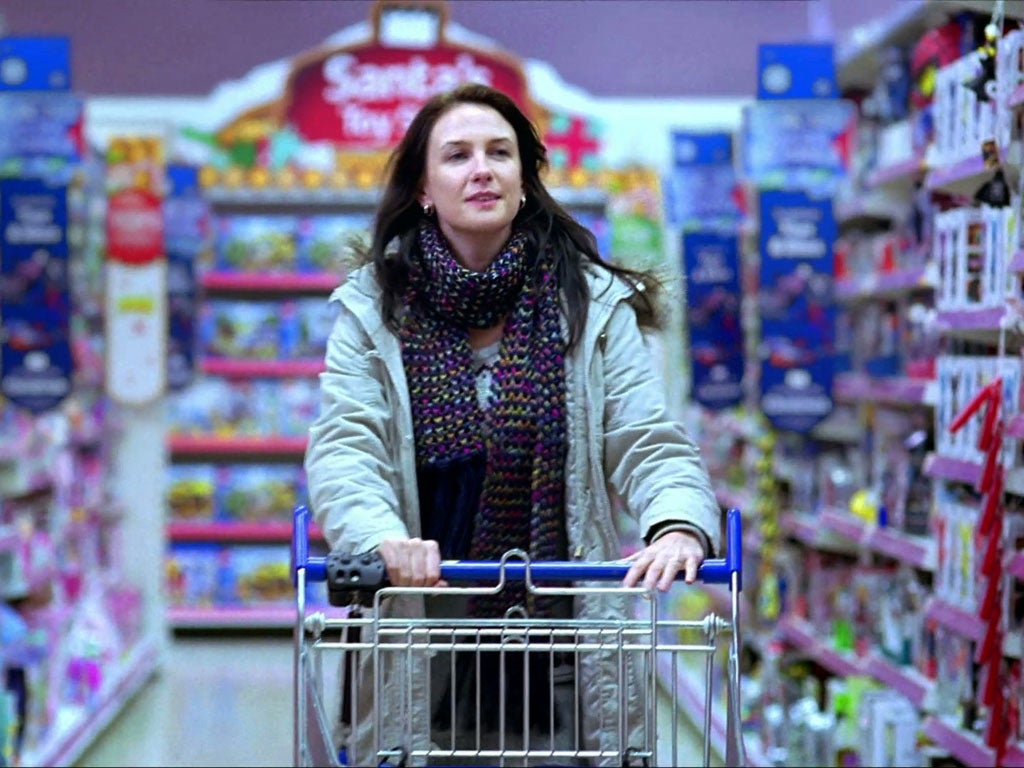Mamma mia, these Tesco, Morrisons and Asda adverts take Christmas back to the 1950s
They've been accused of sexism. But it's not just the mums who suffer

Your support helps us to tell the story
From reproductive rights to climate change to Big Tech, The Independent is on the ground when the story is developing. Whether it's investigating the financials of Elon Musk's pro-Trump PAC or producing our latest documentary, 'The A Word', which shines a light on the American women fighting for reproductive rights, we know how important it is to parse out the facts from the messaging.
At such a critical moment in US history, we need reporters on the ground. Your donation allows us to keep sending journalists to speak to both sides of the story.
The Independent is trusted by Americans across the entire political spectrum. And unlike many other quality news outlets, we choose not to lock Americans out of our reporting and analysis with paywalls. We believe quality journalism should be available to everyone, paid for by those who can afford it.
Your support makes all the difference.Call me a sentimental old fool, but since a much younger and more excitable me first took notice of the Coca Cola lorry and its accompanying strain that holidays were coming, I have looked forward to Christmas adverts every year. So, this year, when I found myself crying at the John Lewis ad (like I do every year without fail) I started looking forward to a month and a half of festive cheer sprinkled on every ad break.
What I didn't expect, was that that festive cheer would be laced with an attitude which, in its outdated sexism, could have come straight out of the 1950s.
I am, of course, talking about the adverts for Asda, Tesco and Morrisons. The three pillars of bargain food retail have come together to praise that special person who makes Christmas possible. No, not Santa; according to these adverts, Christmas happens because of Mum.
Complaints
It's actually difficult to know which of the three is more offensive: is it the Asda one which sees Mum vacuuming up the pine needles before single-handedly putting together Christmas dinner (including a Christmas Eve dash to Asda and setting the table)? Or the Tesco one, where Mum is swamped in the kitchen, her shouts for assistance ignored by her kids and answered only when, in his own time, her husband comes into the kitchen, to the strains of Prince Charming, and hands her a glass of Champagne? Morrison's, similarly, sees Mum doing it all, unhappy and unhelped by her family.
If I absolutely had to choose which one to crown with the dubious honour of Most Sexist Christmas Ad 2012, it'd be Asda taking the prize: from its assertion that “Behind every great Christmas, there's Mum” to the so-called punchline of the ad, when her husband finally acknowledges her presence after Christmas lunch, to ask “what's for tea, love?”
With over 200 official complaints made to the ASA, clearly I'm not the only one who thinks so.
These ads have struck a chord with many women, who have mobilised via social media to voice their disgust that in 2012 we see the preparation and cooking of Christmas dinner as something Mum does, no questions asked. What's more, all three of these advert Mums are presented as exasperated, tired and unhappy, while their husbands, children and guests are carefree and jovial. The ads assert that this miserable but dutiful domesticity is a woman's lot.
Retrograde
Presenting women in this way is insultingly retrograde and simplistic, and not just to the women it reduces to the role of domestic drudge. These ads paint the man of the house as, at best, a jolly fool and, at worst, an ignorant, demanding bossy boots; either he has no idea how hard Mum is working, or he doesn't care. Neither is flattering, and neither is really that realistic in modern family life.
Not only do these ads present an outdated gender dynamic, they also revel in a totally traditional, heteronormative family set-up that isolates many consumers from its vision of Asda's so-called “great Christmas”. Families with one parent, or families with a disabled member, or families with gay parents, or families where dad does the cooking, are all excluded by these depictions of family life.
Criticism of these adverts has been met in social channels by a chorus of voices claiming it's just a bit of fun, a laugh, a joke. But if it is, it's a weak and lazy one. If these ads express an attempt to confront a stereotype or point out an inequality, then it fails miserably, by reinforcing it in an almost aggressive manner.
From the Mums who are slaves to the stove, to men who actively deny their requests for help or demand further domestic duties be done, nobody comes out of these adverts looking good. Least of all the supermarkets themselves.
Join our commenting forum
Join thought-provoking conversations, follow other Independent readers and see their replies
Comments